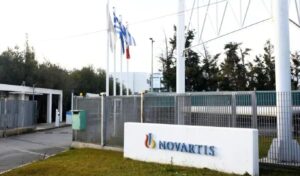«The Greek stock exchange has reached, as of the day before yesterday, after 15 full years, the levels it was at in April 2010. Before the country’s great economic adventure began», emphasized Akis Skertsos on Wednesday (6/8) in a social media post. The Deputy Minister to the Prime Minister stressed that «the struggle to preserve memory so that we do not repeat the mistakes of the past is the daily struggle that every democracy must wage in order to remain a democracy».
Read: Athens Stock Exchange: Historic 9-month rally with 44% gains and banking sector outperformance
Akis Skertsos also noted in his analysis that «strong single-party governments achieve – thanks to the political stability they ensure and provided they implement the appropriate policies – more robust recovery than coalition governments».
Akis Skertsos’s post
«The stock exchange is certainly not -nor should it be nor can it be- the mirror of purchasing power or inequalities in a society. From this perspective, it may be irrelevant as an economic indicator for those not actively involved with it or for those who want to study other aspects of an economy.
Every stock market, however, is the mirror of two very important factors for an economy: the economic value of each listed company and investor confidence in each country’s market.
The Greek stock exchange has reached, as of the day before yesterday, after 15 full years, the levels it was at in April 2010. Before the country’s great economic adventure began. For the majority of citizens, this passed as a -rather- indifferent piece of news.
But is it really so?
If someone asked for a snapshot of what happened politically and economically in Greece over the last 15 years, the trajectory of the Greek stock exchange’s general price index -from April 2010 to August 2025- would give them all the basic answers.
Simply because they would see roughly 4 political and economic periods: the first of absolute collapse of economic values and all confidence that came from April 2010 after the country’s exit from markets and entry into bailout programs, until May 2012.
The second period of the New Democracy-PASOK coalition government until the end of 2014, where earnest efforts were made to implement the country’s obligations, aiming for both fiscal consolidation and economic recovery, resulting in the recovery of half the damage from the first two years.
The third period of SYRIZA-ANEL governance that nearly blew up the economy, recording the lowest value levels in the Greek stock market throughout the entire crisis and making the Greek stock exchange a no man’s land for Greek and foreign investors.
And finally, the fourth period of Mitsotakis’s governance, from 2019 to today, which despite the heavy impact of the pandemic on economic activity and other exogenous shocks (war in Ukraine and Middle East, energy crisis, inflation crisis, etc.) managed to regain the confidence of foreign and Greek investors, returning to investment grade and attracting the largest European fund manager to invest in the Greek stock exchange.
What are the political and economic lessons this picture teaches us?
Conclusion 1:
Recovery is much slower than decline. In this case, it came after 15 years. Confidence everywhere -from economics to politics- comes on foot and leaves at a gallop.
Conclusion 2:
Strong single-party governments achieve -thanks to the political stability they ensure and provided they implement the appropriate policies- more robust recovery than coalition governments. This takes on particular significance for economic developments after the 2027 elections.
Conclusion 3:
It is our political and historical responsibility not to forget. The struggle to preserve memory so that we do not repeat the mistakes of the past is the daily struggle that every democracy must wage in order to remain a democracy».




